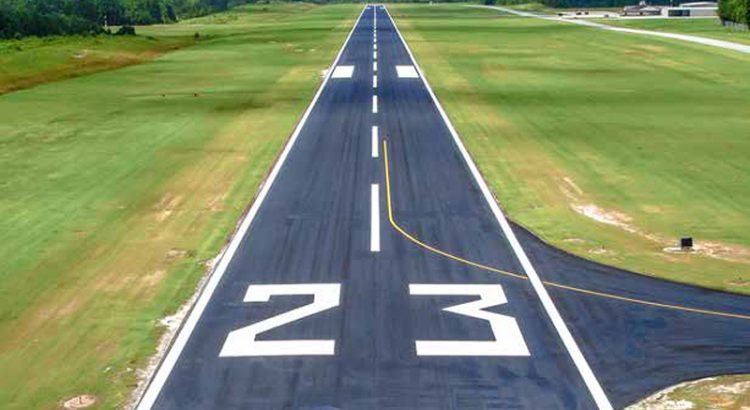In its February meeting, the N.C. Board of Transportation approved state and federal grants for safety and airfield improvement projects at 10 North Carolina airports.
More than $9.5 million in state funding has been awarded for various projects that help the airports increase capacity, attract new jobs and businesses to their communities, and improve safety for pilots and passengers.
The funds the N.C. Board of Transportation approved are:
- $75,000 in additional state funds to install a Precision Approach Path Indicator (PAPI) at Anson County Airport;
- $4.3 million in state funds for Phase II of the west apron expansion at Cape Fear Regional Jetport;
- $500,000 in state funds to clear the Runway 24 approach at Clinton-Sampson County Airport;
- $270,000 in state funds for the design and bidding phase of apron rehabilitation at Charlotte-Monroe Executive Airport;
- $346,500 in state funds to acquire land for an industrial park at Curtis L. Brown Field in Elizabethtown;
- $2.7 million in additional state funds to acquire land in the Runway 23 Runway Protection Zone at Dare County Regional Airport;
- $720,000 in state funds to complete design and environmental work for the repair of the parallel taxiway at Hickory Regional Airport;
- $234,445 in state funds to acquire land for a future parallel taxiway at Mount Olive Municipal Airport;
- $360,000 in additional state funds to complete the design and environmental phase for the existing parallel taxiway relocation at Smith Reynolds Airport in Winston-Salem; and
- $54,000 in state matching funds to acquire land for the future construction of a parallel taxiway at Odell Williamson Municipal Airport in Ocean Isle Beach.
North Carolina’s 72 public airports serve as vital economic engines connecting people and business enterprises with the world. Airports and aviation-related industries contribute more than $61 billion to North Carolina’s economy each year, according to the 2021 State of Aviation report. They support 373,000 jobs, generate more than $2.5 billion in state and local tax revenue, and provide more than $15 billion in personal income.
The funds awarded will be distributed by NCDOT’s Division of Aviation, and do not necessarily represent the total cost of the project.




